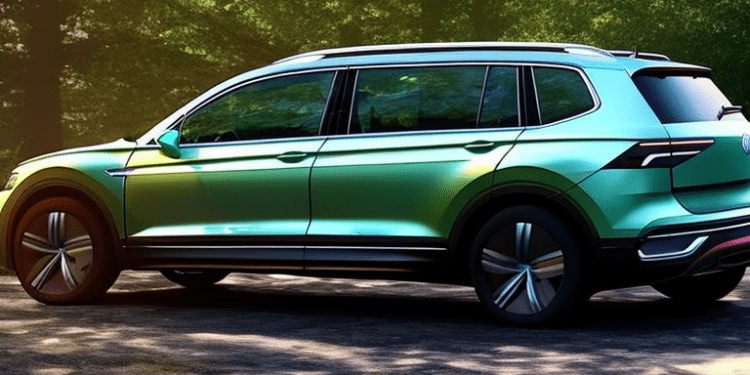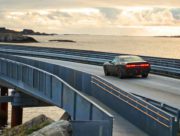Volkswagen is set to revolutionize its best-selling SUV, the internal-combustion-engined Tiguan, by transforming it into an all-electric crossover. The new model is expected to be unveiled sometime in 2025 and go into production in 2026 at the brand’s factory in Wolfsburg, Germany. The news was announced at a works council meeting at VW’s headquarters, where Germany’s Chancellor, Olaf Scholz, was in attendance.
The all-electric Tiguan will be based on VW’s updated MEB-Plus platform, which is set to be the base on which the upcoming all-electric Golf will be built. This platform will feature new lithium iron phosphate (LFP) prismatic battery cells and charging speeds of up to 200 kilowatts. The Volkswagen Tiguan has a starting price of $26,950 in the United States, where it was sold in 71,085 units in 2022, while in Europe, VW sold more than 130,000 units between January-November 2022.
In the past, customers of the German brand requested that models like the Golf, Golf GTI, and Tiguan be transformed into all-electric vehicles. Volkswagen CEO Oliver Blume has said that the automaker is working on this: “The Golf is an icon – a whole generation was named after it. That’s why we also want to bring vehicles like the Golf and the Tiguan into the electric age.”
The all-electric Volkswagen ID.4 crossover was sold in 20,511 units in the US last year. Volkswagen has previously stated that it plans to only sell EVs by 2033 and this latest piece of information comes to solidify the brand’s goal. Besides transforming the Golf, Golf GTI, and Tiguan into electric-only models, the German carmaker is close to launching the production variant of the ID.7, which will replace the Passat, and is reportedly working on an all-electric pickup truck for the American market.
FAQ:
1. Are electric car batteries recyclable?
Yes, electric car batteries can be recycled.
2. Are electric car chargers free?
No, electric car chargers are not usually free.
3. Can electric car batteries be replaced?
Yes, electric car batteries can be replaced.








